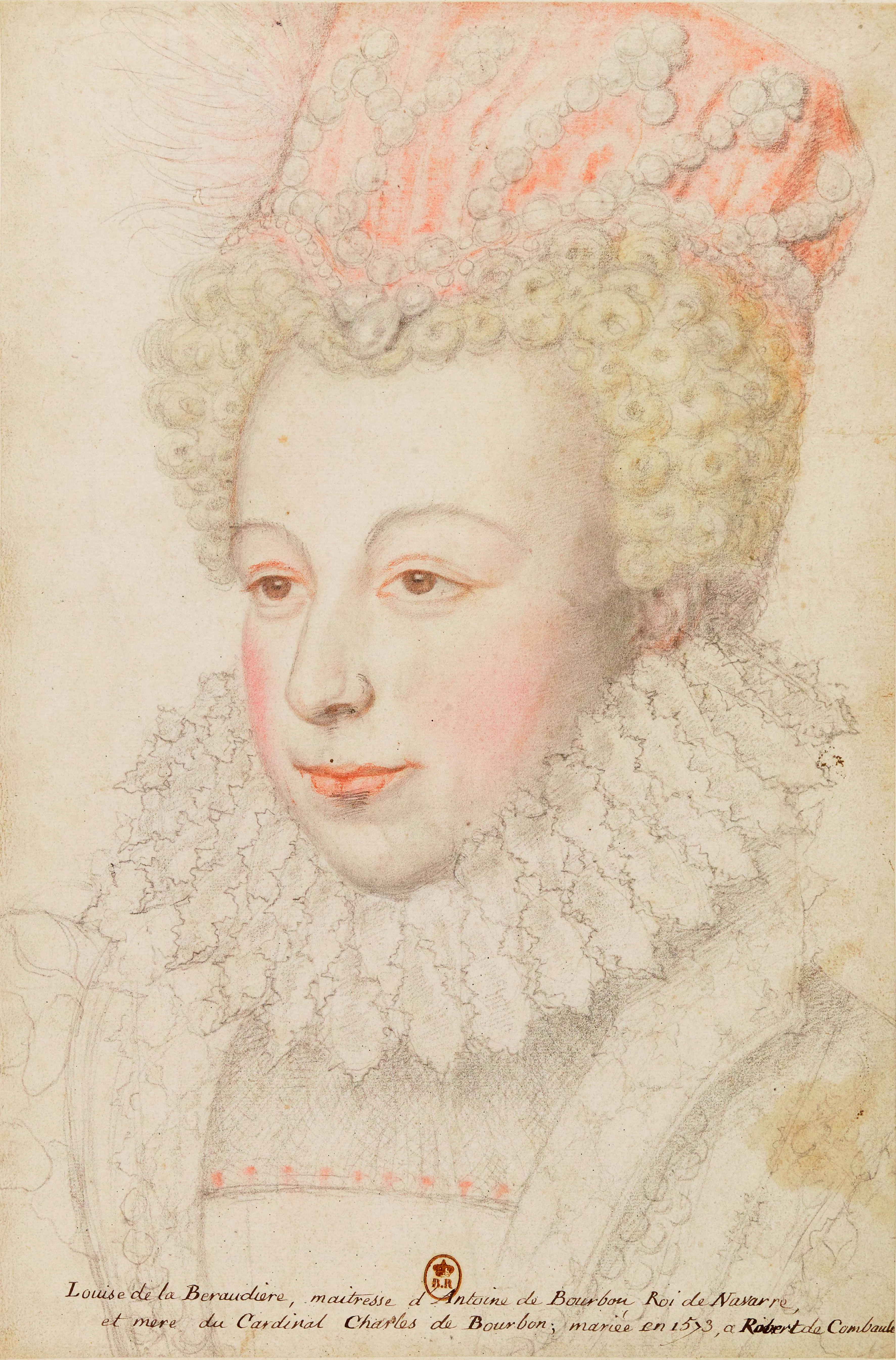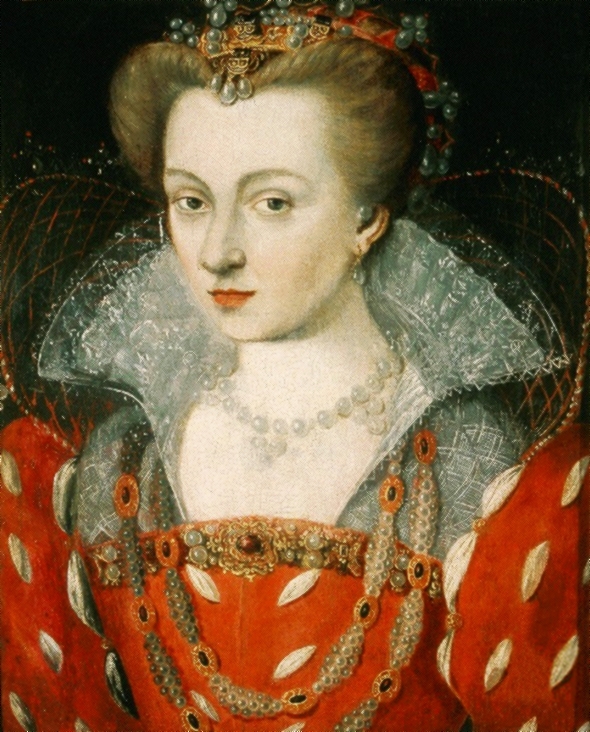|
Louis De Bérenger
Louis de Bérenger, sieur du Guast (– 31 October 1575) was a French noble and early favourite of king Henri III during the French Wars of Religion. Having fought in the latter Italian Wars under Marshal Brissac he achieved prominence in court in 1569, when he was subject to the attentions of the acclaimed poet Ronsard. The following year he was elevated to a gentleman of the chamber in the entourage of the King's brother. It was with the king's brother that he participated in the assassinations that prefigured the Massacre of Saint Bartholomew. In the civil war that followed he would command a company of infantry during the siege of La Rochelle, during which he received a severe wound to his arm in an assault. With his patron Anjou's election as king of the Commonwealth, Du Guast travelled with his lord to the east. While in the country during Anjou's brief rule he found himself overshadowed by Bellegarde, Anjou's new closest favourite, finding himself forced to compete wit ... [...More Info...] [...Related Items...] OR: [Wikipedia] [Google] [Baidu] |
French Wars Of Religion
The French Wars of Religion is the term which is used in reference to a period of civil war between French Catholic Church, Catholics and Protestantism, Protestants, commonly called Huguenots, which lasted from 1562 to 1598. According to estimates, between two and four million people died from violence, famine or diseases which were directly caused by the conflict; additionally, the conflict severely damaged the power of the French monarchy. The fighting ended in 1598 when Henry of Navarre, who had converted to Catholicism in 1593, was proclaimed Henry IV of France and issued the Edict of Nantes, which granted substantial rights and freedoms to the Huguenots. However, the Catholics continued to have a hostile opinion of Protestants in general and they also continued to have a hostile opinion of him as a person, and his assassination in 1610 triggered a fresh round of Huguenot rebellions in the 1620s. Tensions between the two religions had been building since the 1530s, exacerba ... [...More Info...] [...Related Items...] OR: [Wikipedia] [Google] [Baidu] |
Henry I, Duke Of Guise
Henry I, Prince of Joinville, Duke of Guise, Count of Eu (31 December 1550 – 23 December 1588), sometimes called ('Scarface'), was the eldest son of Francis, Duke of Guise, and Anna d'Este. His maternal grandparents were Ercole II d'Este, Duke of Ferrara, and Renée of France. Through his maternal grandfather, he was a descendant of Lucrezia Borgia and Pope Alexander VI. A key figure in the French Wars of Religion, he was one of the namesakes of the War of the Three Henrys. A powerful opponent of the queen mother, Catherine de' Medici, Henry was assassinated by the bodyguards of her son, King Henry III. Early life Henry was born on 31 December 1550, the eldest son of Francis Duke of Guise, one of the leading magnates of France, and Anna d'Este, daughter of the Duke of Ferrara. In his youth he was friends with Henry III, the future king, and at the behest of Jacques, Duke of Nemours tried to persuade the young prince to run away with him in 1561 to join the arch-Catholic ... [...More Info...] [...Related Items...] OR: [Wikipedia] [Google] [Baidu] |
Philippe Hurault De Cheverny
Philippe Hurault (1528 in Cheverny, Loir-et-Cher – 1599), comte de Cheverny, was a French nobleman and politician. His son Philippe Hurault de Cheverny was a bishop. Life He was counsellor to the parlement de Paris, maître des requêtes (1562), and assisted at the battles of Jarnac and Moncontour. Henri III made him garde des sceaux in 1578 and lieutenant general of the Orléanais and the pays Chartrain in 1582. After the Day of the Barricades in 1588, he was disgraced by his liaisons with the Catholic League and left court. Henri IV recalled him in August 1590 and again made him garde des sceaux, a post he then held until his death. He was the son of Raoul Hurault, controller of finances to king Francis I of France. He married Anne de Thou but had a relationship with Isabeau Babou de la Bourdaisière, lady of Sourdis, daughter of Jean Babou and the influential aunt of Henry IV's mistress Gabrielle d'Estrées. The Hurault had owned the château de Cheverny for ... [...More Info...] [...Related Items...] OR: [Wikipedia] [Google] [Baidu] |
Charles, Cardinal Of Lorraine
Charles de Lorraine (c. 1525 – 26 December 1574), Duke of Chevreuse, was a French Cardinal, a member of the powerful House of Guise. He was known at first as the Cardinal of Guise, and then as the second Cardinal of Lorraine, after the death of his uncle, Jean, Cardinal of Lorraine (1550). He was the protector of François Rabelais and Pierre de Ronsard and founded Reims University. He is sometimes known as the Cardinal de Lorraine. Biography Born in 1525, Joinville, Haute-Marne, Charles of Guise was the son of Claude, Duke of Guise and his wife Antoinette de Bourbon. His older brother was François, Duke of Guise. His sister Mary of Guise was wife of James V of Scotland and mother of Mary, Queen of Scots. He was made Archbishop of Reims in 1538, (the day after the coronation of king Henry II of France, at which he had officiated). Cardinal In a political move to draw the France closer to the papacy, Pope Paul III consecrated Charles as cardinal in July 1547. He became coadj ... [...More Info...] [...Related Items...] OR: [Wikipedia] [Google] [Baidu] |
Louise Of Lorraine
Louise of Lorraine (french: Louise de Lorraine-Vaudémont; 30 April 1553 – 29 January 1601) was Queen of France as the wife of King Henry III from their marriage on 15 February 1575 until his death on 2 August 1589. During the first three months of their marriage, she was also Queen of Poland and Grand Duchess of Lithuania. As a dowager queen, Louise held the title of Duchess of Berry. Personal life Early years Born in Nomeny in the Duchy of Bar, Louise was the third daughter and youngest child born to Nicholas of Lorraine, Duke of Mercœur, and Countess Margaret of Egmont (1517–1554). She was the only surviving child of her parents; her older siblings, two sisters and one brother, died in infancy. Louise's mother died shortly before her first birthday in 1554, and her father quickly remarried, in 1555, Princess Joanna of Savoy-Nemours (1532–1568), and gave Louise a solid classical education and introduced her to Nancy's court at the age of ten. Joanna of Savoy-Nem ... [...More Info...] [...Related Items...] OR: [Wikipedia] [Google] [Baidu] |
Elizabeth I Of England
Elizabeth I (7 September 153324 March 1603) was List of English monarchs, Queen of England and List of Irish monarchs, Ireland from 17 November 1558 until her death in 1603. Elizabeth was the last of the five House of Tudor monarchs and is sometimes referred to as the "Virgin Queen". Elizabeth was the daughter of Henry VIII and Anne Boleyn, his second wife, who was executed when Elizabeth was two years old. Anne's marriage to Henry was annulled, and Elizabeth was for a time declared Royal bastard, illegitimate. Her half-brother Edward VI ruled until his death in 1553, bequeathing the crown to Lady Jane Grey and ignoring the claims of his two half-sisters, the Catholic Church, Catholic Mary I of England, Mary and the younger Elizabeth, in spite of Third Succession Act, statute law to the contrary. Edward's will was set aside and Mary became queen, deposing Lady Jane Grey. During Mary's reign, Elizabeth was imprisoned for nearly a year on suspicion of supporting Protestant reb ... [...More Info...] [...Related Items...] OR: [Wikipedia] [Google] [Baidu] |
Charles De Balsac
Charles is a masculine given name predominantly found in English and French speaking countries. It is from the French form ''Charles'' of the Proto-Germanic name (in runic alphabet) or ''*karilaz'' (in Latin alphabet), whose meaning was "free man". The Old English descendant of this word was '' Ċearl'' or ''Ċeorl'', as the name of King Cearl of Mercia, that disappeared after the Norman conquest of England. The name was notably borne by Charlemagne (Charles the Great), and was at the time Latinized as ''Karolus'' (as in '' Vita Karoli Magni''), later also as '' Carolus''. Some Germanic languages, for example Dutch and German, have retained the word in two separate senses. In the particular case of Dutch, ''Karel'' refers to the given name, whereas the noun ''kerel'' means "a bloke, fellow, man". Etymology The name's etymology is a Common Germanic noun ''*karilaz'' meaning "free man", which survives in English as churl (< Old English ''ċeorl''), which developed it ... [...More Info...] [...Related Items...] OR: [Wikipedia] [Google] [Baidu] |


